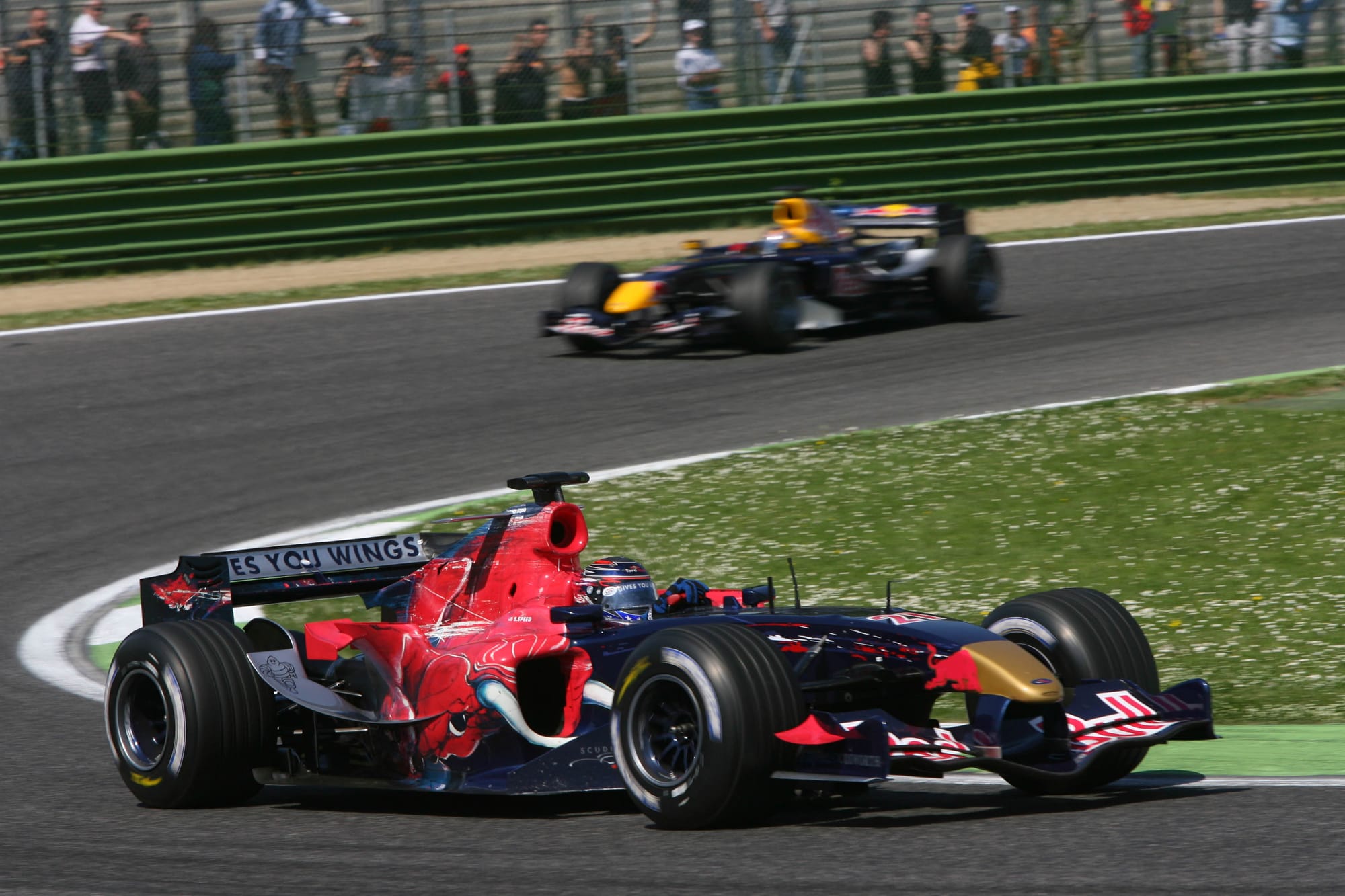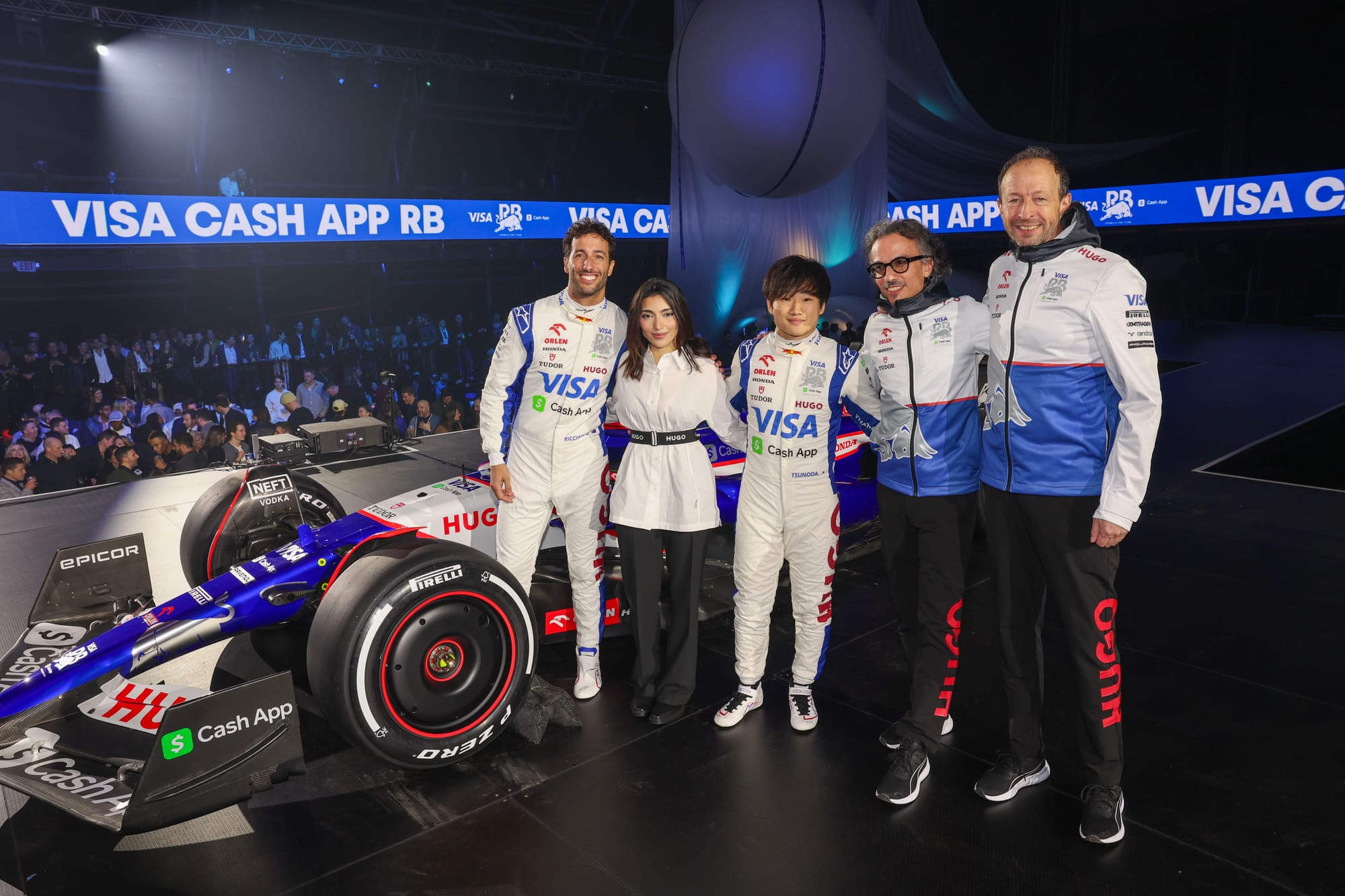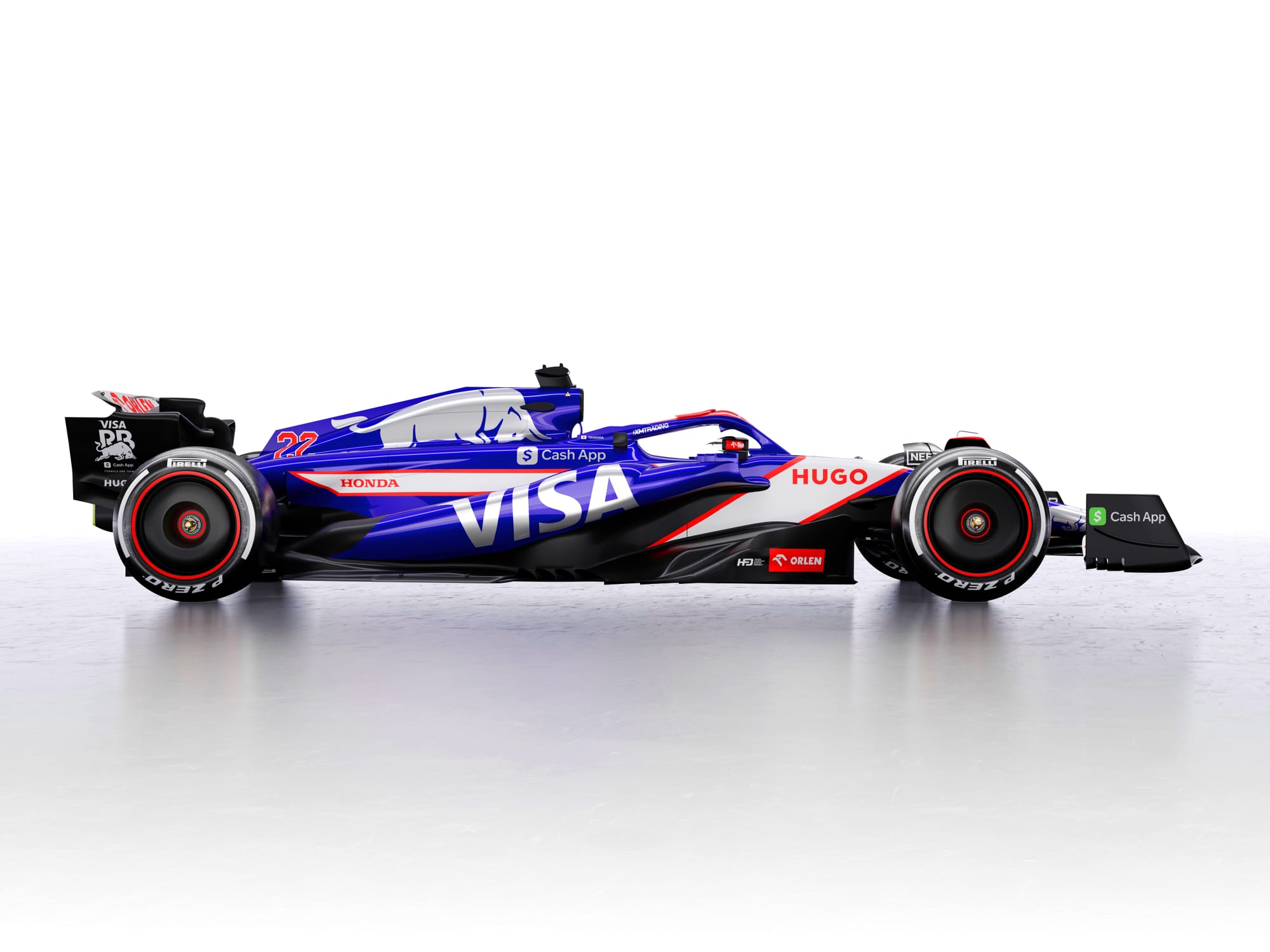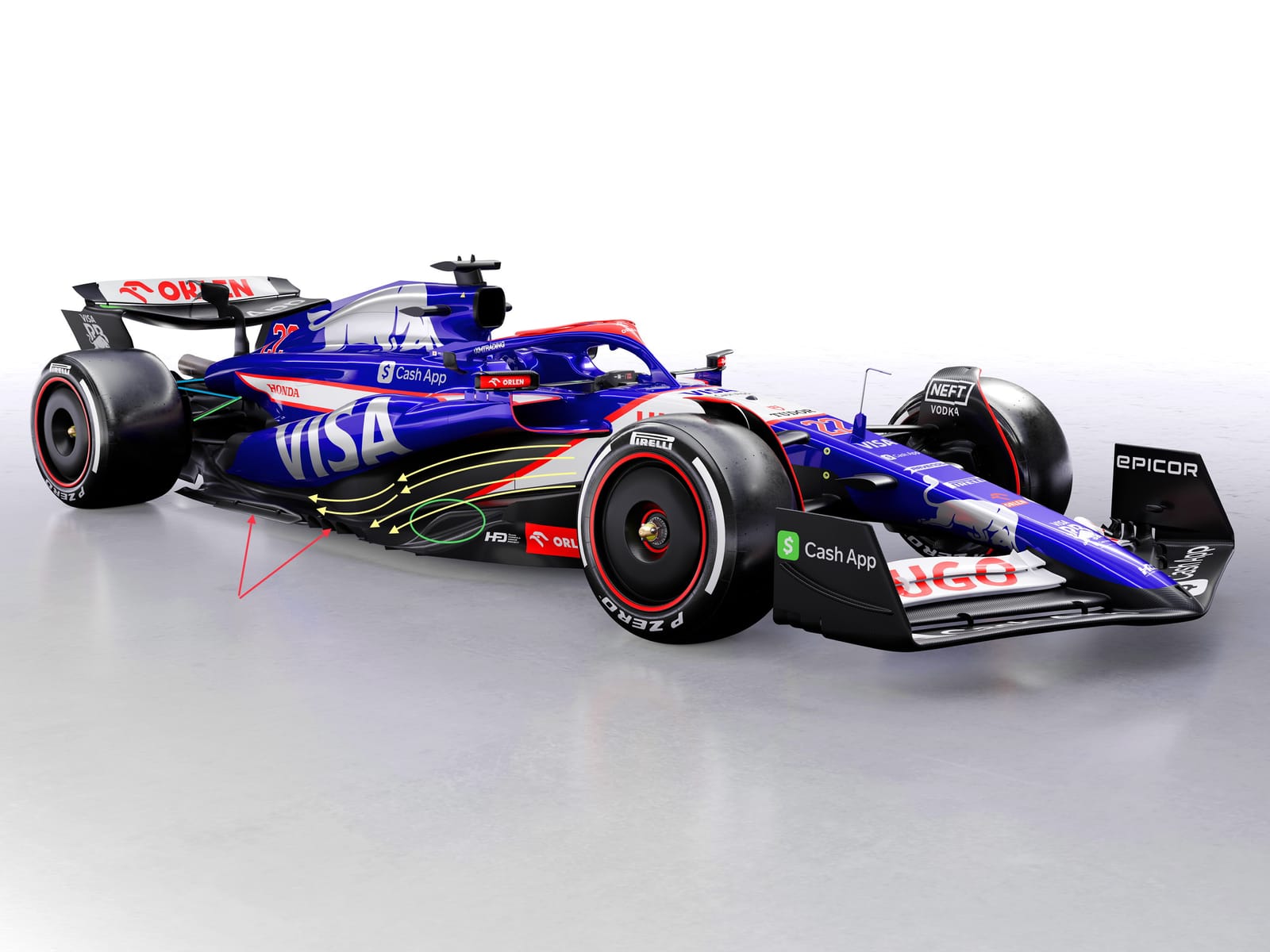Up Next

Red Bull’s second Formula 1 team RB needs a course correction to ensure a divisive start to its rebrand does not become the foundation for an era of wrong priorities.
The unveiling of the VCARB 01 could absolutely have passed fans by. Then, once the car and its full suite of names and brandings were finally revealed, we got a better idea of just how tortured it is to talk about a team with such a clumsy new identity.
It has combined to leave a worrying impression that another small, independent team has traded its sense of self to satisfy corporate priorities. And the implications of that are not to be underestimated.
An impossible-to-watch launch, happening late at night on the west coast in the US and early in the morning in Europe, had the air of something that happened purely to satisfy executives, partners and VIPs. Everything else felt like an afterthought. Style before substance.

We’ve known for a long time this year would align ‘RB’ more closely with Red Bull Racing. The name, the car part sharing, the soon-to-happen relocation of the UK base to the Red Bull campus in Milton Keynes - that’s all obvious.
But as Red Bull’s corporate headquarters has waded in to influence its other F1 team’s future so severely, it should be wary of the potential cost.
Back as Toro Rosso, this team built a history and meant something. It was so clearly part of the Red Bull family, it was clearly a Red Bull team, and the Italian name became a lovely subtle link to its Minardi heritage and its ongoing stay in Faenza as well.

The AlphaTauri rebrand cost something but at least fulfilled a specific, internal Red Bull purpose. And it did not erode the team’s essence.
Now Faenza’s influence and importance is diminishing too, further chipping away at the team’s core as it becomes a corporate, bland extension of the Red Bull F1 empire, with the identity sold to the highest bidder. And this approach is remarkably devoid of the marketing genius that made Red Bull into a massive global success.
It’s worth stressing that the naming issue is not just that it sounds a bit rubbish, nor is the issue with Visa and Cash App as companies. Team sponsors are the norm, and almost every team on the grid has an official entry name that we gloss over - Mercedes-AMG Petronas being one example and last year’s mouthful Aston Martin Aramco Cognizant being another.
But every team on the grid with a sponsor name also has something real and meaningful behind it. BWT Alpine is obviously Alpine, Moneygram Haas is still Haas. The only exception is Stake F1 Team but pretty much everybody’s just calling that Sauber anyway because that’s what it really is.
The team formerly known as AlphaTauri formerly known as Toro Rosso has been deliberately stripped of that. Even though it preaches the opposite with its rationale.
The company itself is now called Racing Bulls, which gets its name from Dietrich Mateschitz’s Flying Bulls. That’s a clear company link and a nod to Mateschitz, so a nice touch. And it was done specifically to give the team a foundation without sponsors.
But then the logic starts to unravel. The team’s called RB instead of Racing Bulls, and that’s not an abbreviation for the company name - apparently it stands for Red Bull. The model type means the full name of the car is the RB VCARB 01 (RB in there twice), and undermines the argument that the identity is meant to exist beyond sponsors, because it incorporates the Visa Cash App initials. So what will the car be called when the sponsors disappear?
It's needlessly confusing, and weakly justified. And the sense of identity is further diminished by the livery, which in isolation is quite popular - but has also evoked clear memories of the Toro Rosso era.
It’s hardly an imaginative new design that leaves you thinking ‘yes, this is SO RB!’. The only thing this team is really evoking at the moment is that it is extremely ‘Red Bull 2’ - which, politically, given the increasing irritation of some rivals about team collaborations, might not be the smartest move either.
It’s an ominous start to something with potentially the right intentions. Demanding more from this team, not just letting it hang around cashing in on prize money, is the attitude we want from team owners. And becoming more efficient is the priority for everyone on the grid. Red Bull’s not doing anything outrageous in this regard. And maybe it was inevitable that the early weeks of the rebrand would be overtly commercial.

Performance will need to quickly become the dominant factor in this team’s existence again. Because this team could be competitive this year. It has a good, likeable driver line-up. It has the basis of a strong car. It has serious racing people in the team and used its Red Bull muscle to enhance the structure and recruit more depth.
It would be such a waste if this team’s transformation is not for the better and it is actually made weaker than the sum of its parts by prioritising corporate wishes and a perceived bottom line.
There’s an interesting contrast to make with Alpine in this regard. We have spared no criticism for Renault’s corporate missteps for a long time. But with a more focused launch of its own this week, and a subtle suggestion that the way the team will go about things is going to change, it has presented itself less like a marketing exercise that just has a race team attached.
It reflects very poorly on Red Bull that this is where it risks heading with its second team.





